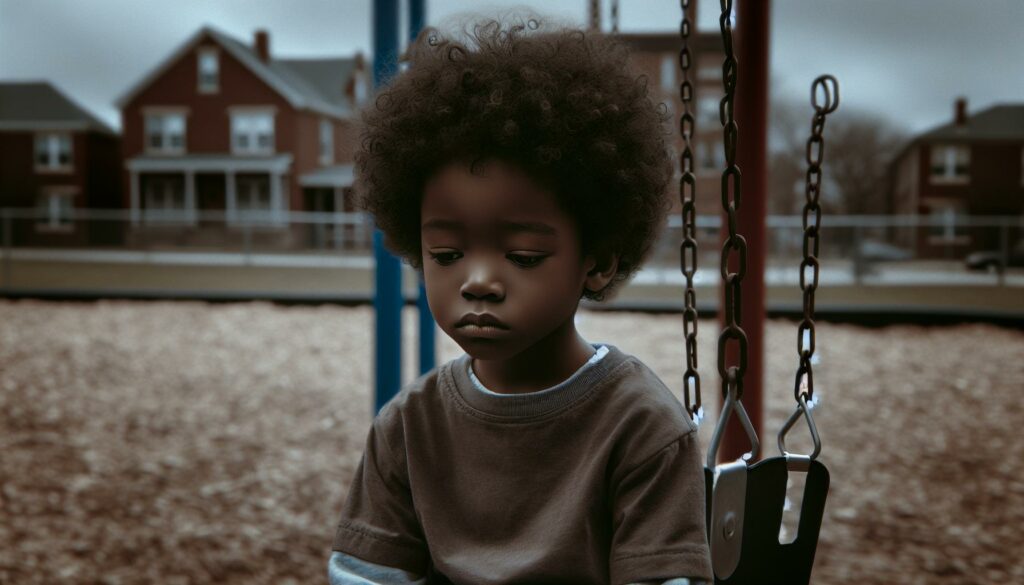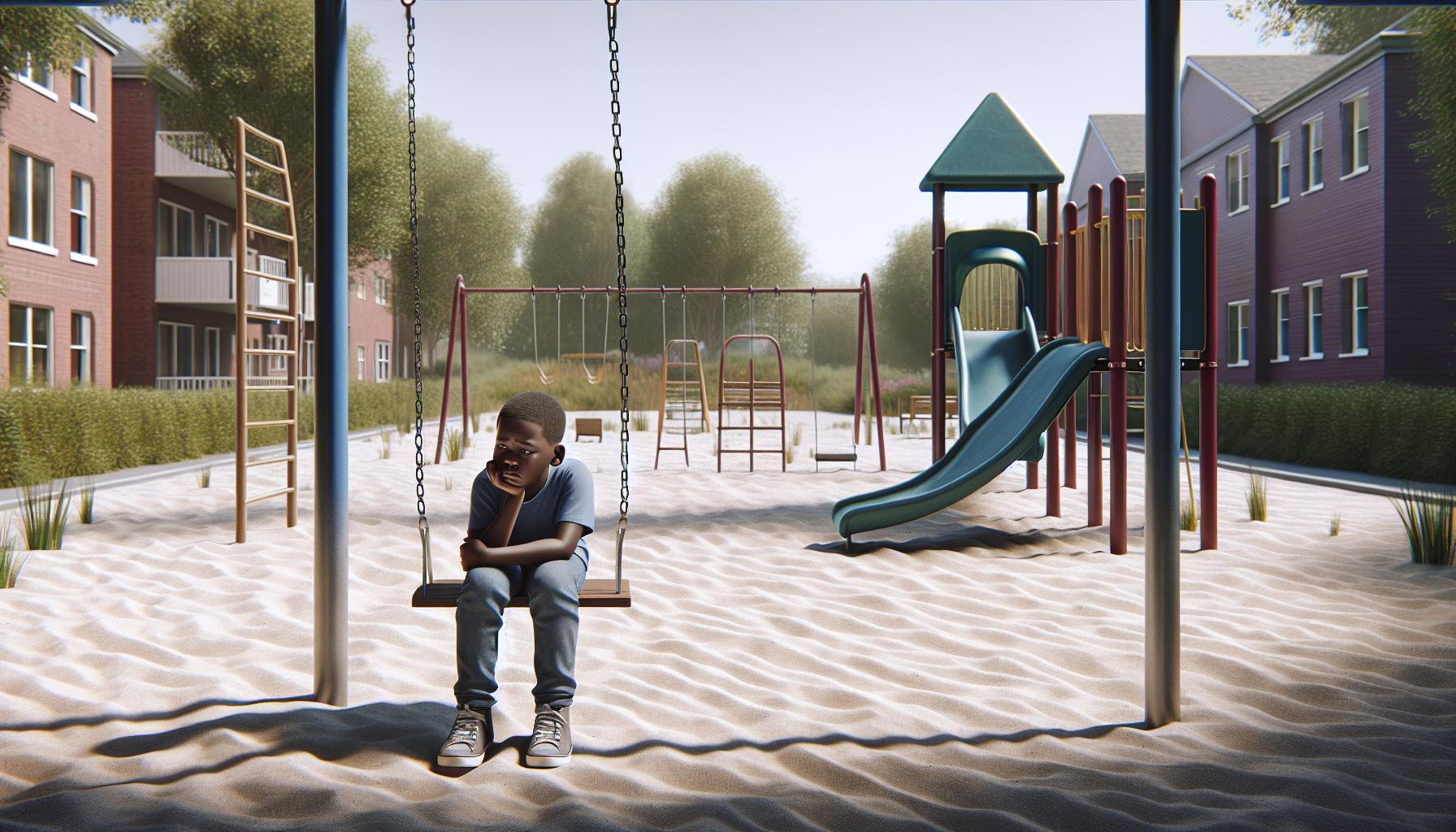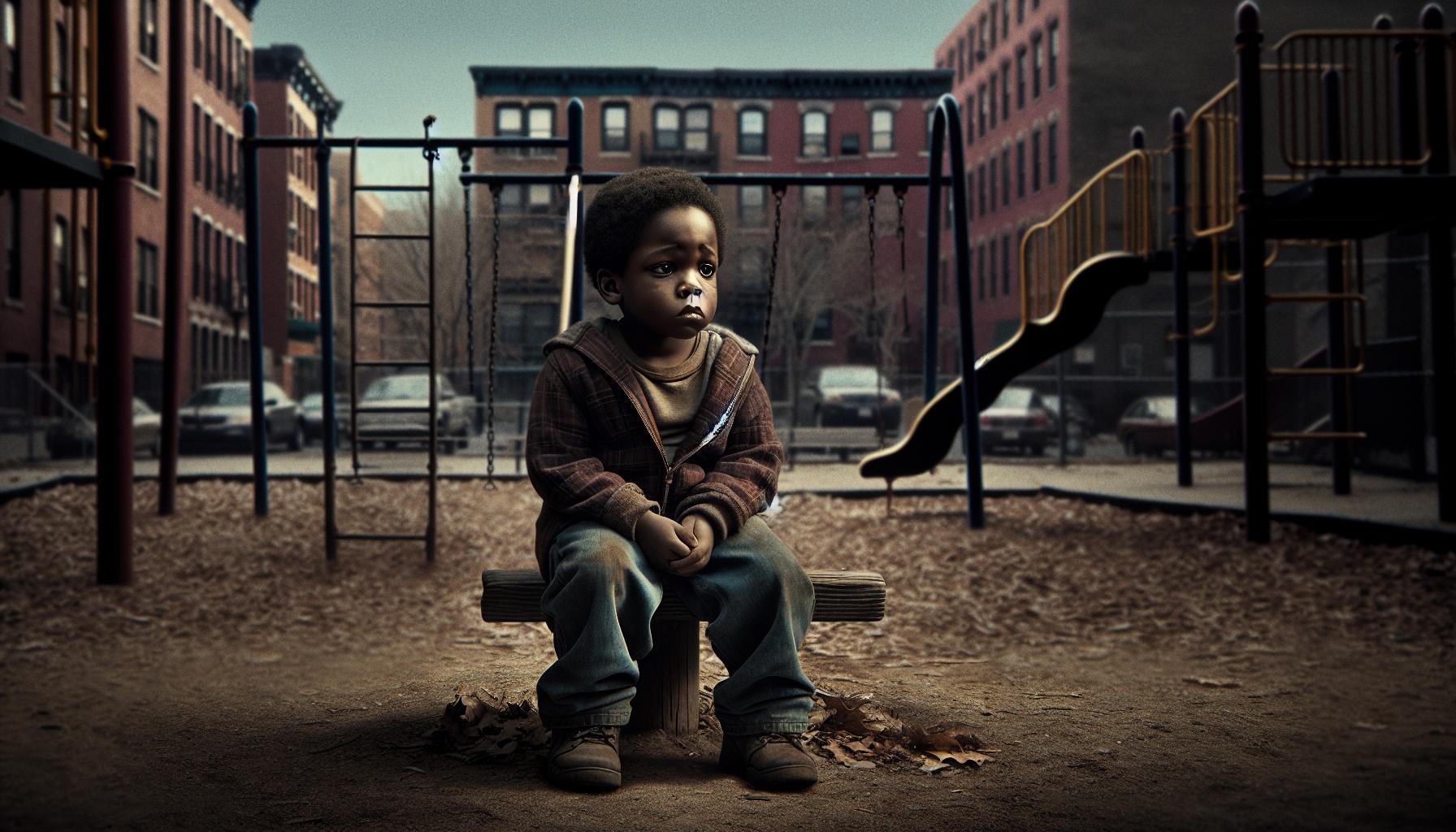
What happens to a child when a single parent goes to jail, the impact on their child can be profound and far-reaching. As someone who’s explored the complexities of family dynamics, I’ve seen how this sudden upheaval can shake a child’s world. The emotional turmoil, financial instability, and potential shifts in living arrangements can create a whirlwind of challenges for young minds trying to make sense of their new reality.
Children often grapple with feelings of abandonment, confusion, and even shame. They may face stigma from peers and struggle with their own identity in a world that suddenly feels different. Understanding these effects is crucial for caregivers, educators, and communities aiming to support these children during such a critical time. Let’s delve deeper into the consequences and explore how we can help these young individuals navigate their unique journeys.
Key Takeaways
- Emotional Impact: Children of incarcerated parents often experience intense emotions such as confusion, abandonment, and shame, leading to anxiety and depression.
- Behavioral Changes: These emotional disturbances can result in behavioral issues, including aggression, social withdrawal, and declines in academic performance.
- Long-Term Consequences: Parental incarceration can adversely affect children’s social relationships and educational success, potentially leading to trust issues and increased drop-out rates.
- Importance of Support Systems: Family and community resources provide vital emotional and practical support, helping children cope with their circumstances and fostering resilience.
- Coping Strategies: Professional help, including therapy and peer support groups, can significantly enhance emotional resilience, guiding children through their challenges.
- Community Role: Schools and local organizations should implement programs to assist affected children, promoting emotional well-being and academic persistence.
What Happens to a Child When a Single Parent Goes to Jail
Parental incarceration poses serious challenges for children. Statistics indicate that approximately 2.7 million children in the U.S. have an incarcerated parent. This situation often disrupts their lives, affecting emotional and mental well-being. Children may experience confusion, anxiety, and stigma as they grapple with their parent’s absence.
Emotional turmoil arises when a parent goes to jail. Many children exhibit symptoms like depression and anger, struggling to understand their circumstances. The sudden absence of a parent can instigate feelings of abandonment and helplessness.
Financial strain is another critical concern. When one parent is incarcerated, the remaining caregiver must often shoulder the financial burden alone. This sudden shift can lead to instability in housing, food, and education, heightening stress for both the child and the caregiver.
Logistical challenges also emerge as children’s routines alter significantly. Caregivers may need to arrange new childcare solutions or transportation to visit the incarcerated parent. Such changes can disrupt children’s stability, impacting their overall development.
Understanding these consequences is essential for caregivers, educators, and communities. Adequate support systems can mitigate the adverse effects of parental incarceration on children, fostering resilience and helping them navigate this challenging experience.
Immediate Impact On The Child

Parental incarceration deeply affects children, impacting their emotional well-being and leading to significant behavioral changes. Understanding these immediate impacts is crucial for providing necessary support.
Emotional Reactions
Children often experience intense emotional reactions, including feelings of abandonment, confusion, and shame. Many struggle with guilt, believing they somehow contributed to their parent’s incarceration. Common symptoms include anxiety and depression. Affected children might exhibit mood swings or withdraw from friends and activities they once enjoyed. In many cases, these emotional challenges get compounded by a lack of clear communication about the situation, leaving children feeling isolated and misunderstood.
Behavioral Changes
Behavioral changes frequently accompany emotional turmoil. Many children exhibit increased aggression, defiance, or withdrawal in social situations. Others might struggle with academic performance due to anxiety or distraction. Some engage in risky behaviors, seeking attention and coping with uncertainty. Changes in sleep patterns, such as insomnia or nightmares, often manifest as well. Caregivers and educators should monitor these behaviors, as they signal the need for additional support and intervention.
Long-Term Consequences

The long-term consequences of a single parent’s incarceration significantly affect a child’s life. The implications span social relationships, academic performance, and emotional well-being, creating lasting challenges.
Social Relationships
Social relationships often suffer due to parental incarceration. Children may struggle to maintain friendships, as feelings of shame lead to social withdrawal. Stigmatization within peer groups can exacerbate isolation, making it difficult to forge connections. Research indicates that children with incarcerated parents frequently exhibit trust issues, which can hinder their ability to build healthy relationships in the future. Furthermore, interactions with extended family may shift, particularly if caregivers are strained, reducing support networks that help the child cope.
Academic Performance
Academic performance can decline markedly when a parent goes to jail. Children might experience disruptions in their routines and increased anxieties surrounding their home life. This instability often translates into decreased focus and lower grades. Studies show that children with incarcerated parents are more likely to encounter suspensions or drop out of school altogether. The loss of a supportive parent figure creates educational barriers that hinder long-term success. Schools need to provide intervention programs to support these children, aiding their academic persistence and overall development.
Support Systems Available

Support systems play a crucial role in helping children cope with the emotional and logistical challenges of having an incarcerated parent. Various resources exist to assist these children and their caregivers.
Family Support
Family members often serve as immediate support systems for children facing parental incarceration. Grandparents, aunts, uncles, and siblings can provide emotional stability by maintaining family connections. They can also help with practical needs, such as childcare and financial assistance. Research highlights that children who maintain close relationships with family during this time experience fewer behavioral issues. Family members can facilitate communication with the incarcerated parent, allowing children to feel connected, which can alleviate feelings of isolation and abandonment.
Community Resources
Community resources offer essential support for children of incarcerated parents. Nonprofit organizations, faith-based services, and local agencies frequently provide various programs aimed at emotional well-being and practical assistance. These resources may include:
- Counseling Services: Mental health professionals can address emotional challenges such as anxiety and depression, offering coping strategies tailored for affected children.
- Support Groups: Peer-led groups allow children to share their experiences and feelings in a safe environment, fostering a sense of belonging and reducing stigma.
- After-School Programs: Educational and recreational programs ensure consistent engagement, helping children maintain academic performance while promoting social skills.
- Legal Aid: Organizations offering legal support can assist caregivers with navigating custody arrangements and understanding the rights of the children, ensuring that stability is prioritized.
By tapping into these family and community resources, children can mitigate the emotional and logistical impacts of having an incarcerated parent, paving the way for healthier developmental outcomes.
Coping Strategies For Children
Coping with the incarceration of a single parent presents unique challenges for children. Implementing effective strategies can enhance emotional resilience and stability during this difficult time.
Professional Help
Accessing professional help plays a critical role in supporting children. Therapists or counselors specializing in childhood trauma can provide a safe space for children to express their feelings. Regular therapy sessions help manage symptoms of anxiety and depression. Group therapy can also connect children with peers facing similar circumstances, fostering a sense of belonging and understanding. Schools should offer access to mental health resources, including counselors trained in trauma-informed care, to better guide children through their emotional turmoil.
Peer Support
Peer support significantly benefits children coping with the absence of an incarcerated parent. Connecting with other kids in similar situations can normalize their experiences and reduce feelings of isolation. Joining support groups or community activities encourages social interaction and emotional sharing. Schools can facilitate peer mentorship programs, allowing children to lean on and learn from one another. Engaging in team sports or clubs helps combat social withdrawal by fostering friendships and enhancing self-esteem through teamwork and shared interests.
Challenging Experience
What happens to a child when a single parent goes to jail? The impact of a single parent’s incarceration on a child is profound and far-reaching. It’s heartbreaking to think about the emotional and logistical turmoil these kids face. They often grapple with feelings of abandonment and confusion, which can lead to long-term struggles in their social and academic lives.
Recognizing the importance of support systems can make a significant difference. Family, community resources, and professional help are crucial in helping these children heal and thrive. By fostering a sense of belonging and providing emotional stability, we can help them navigate this challenging experience and emerge stronger. It’s essential to prioritize their well-being and ensure they have the tools they need to build a brighter future.
